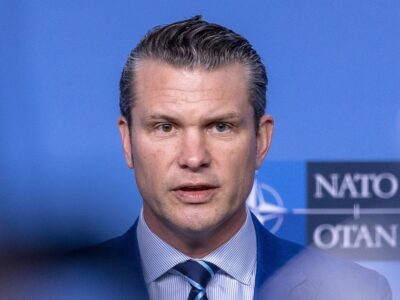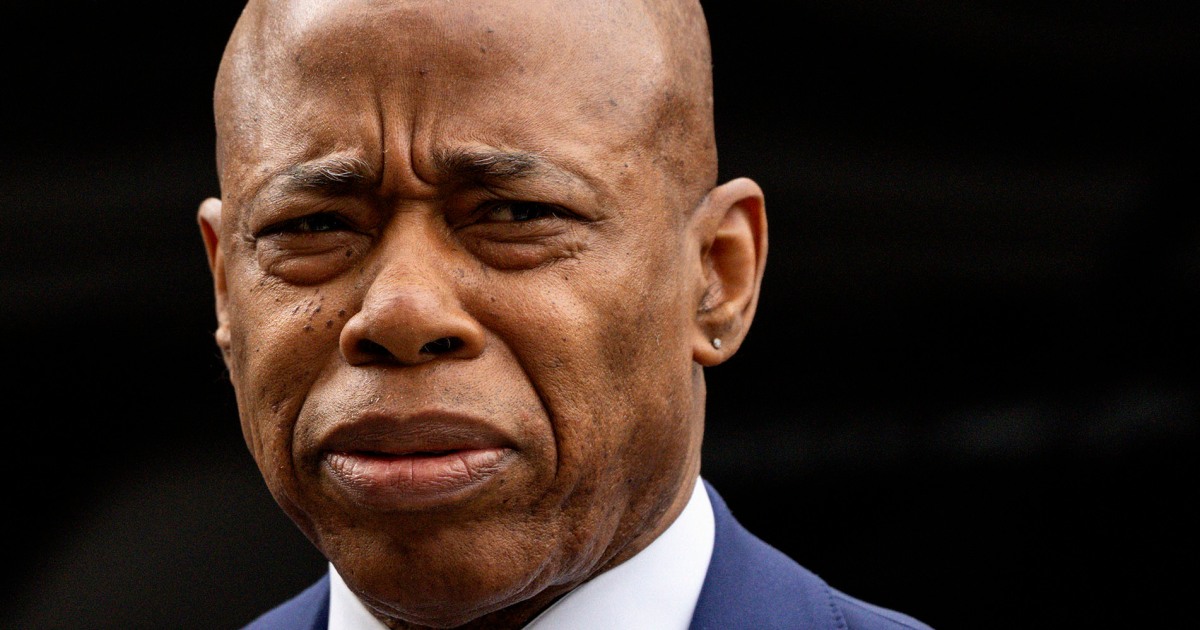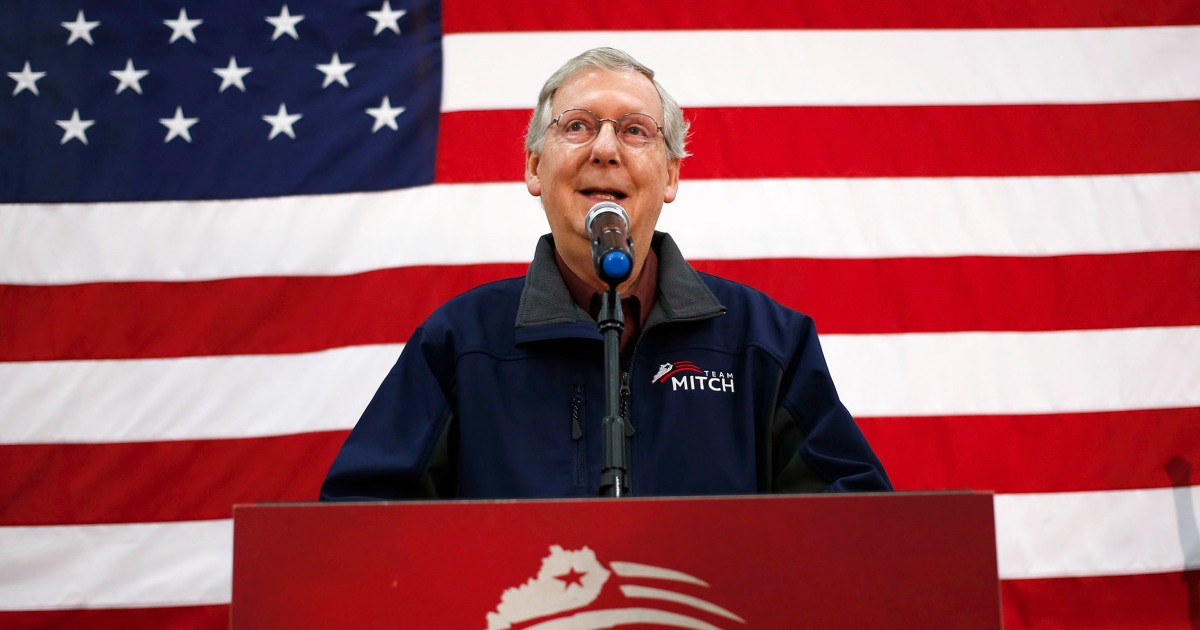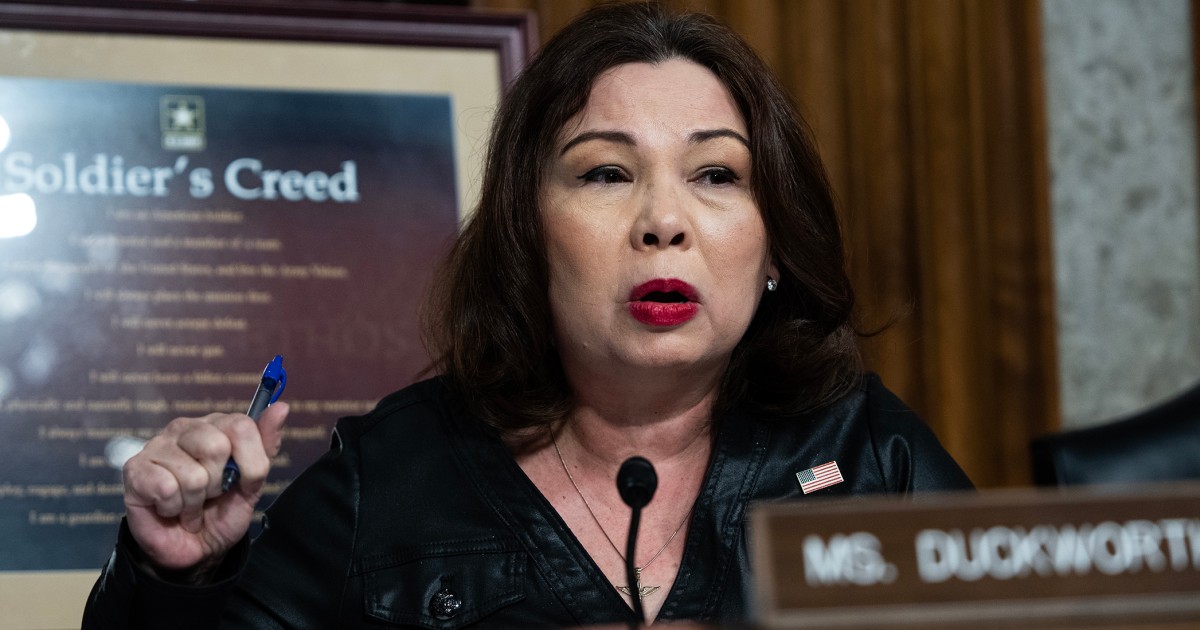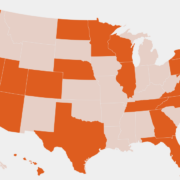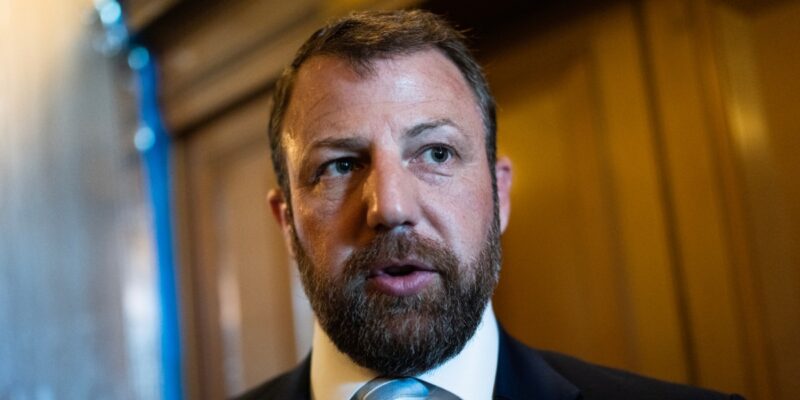
Sen. Markwayne Mullin, R-Okla., on Sunday cast doubt on suggestions from Ukrainian President Volodymyr Zelenskyy that Russian President Vladimir Putin could invade other countries beyond Ukraine, even as the senator suggested that the U.S. should only remain a member of NATO “if it’s in our interest.”
“I don’t believe for a second Russia is going to advance a war in any other country right now,” Mullin told moderator Kristen Welker on NBC News’ “Meet the Press,” adding: “It’d be extremely dangerous, and he will call President [Donald] Trump’s hand.”
The senator’s remarks followed a discussion on whether the U.S. might consider withdrawing from the North Atlantic Treaty Organization, or NATO.
Mullin said the U.S. should remain in NATO “if it’s in our interest,” but added that “right now, NATO has not always been playing in our best interest. And when it’s not America’s best interest anymore, we should relook at things.”
His comments come as the U.S. has sought to begin peace talks to end the war in Ukraine, despite a spat between Trump and Zelenskyy that exploded onto the public stage last week.
On Friday, Trump told Fox News Radio’s Brian Kilmeade that he didn’t think it was necessary for Zelenskyy to have a seat at the table during peace negotiations.
“He’s been at meetings for three years, and nothing got done,” Trump said. “So, I don’t think he’s very important to be at meetings, to be honest with you. He’s been there for three years. He makes it very hard to make deals. But look what’s happened to his country, it’s been demolished.”
In a separate event at the White House later on Friday, Trump added that he has had “very good talks with Putin, and I’ve had not such good talks with Ukraine.”
During an interview with “Meet the Press” on the sidelines of the Munich Security Conference earlier this month, Zelenskyy told Welker that he would not accept any kind of peace deal for Ukraine that is negotiated between just Russia and the U.S. He also warned that Russian military exercises in Belarus could be a sign that Putin was preparing to invade other former Soviet nations.
“Knowing that he did not succeed in occupying us, we do not know where he will go. There are risks that this can be Poland and Lithuania, because we believe — we believe that Putin will wage war against NATO,” Zelenskyy said in that interview.
The Ukrainian president also warned that if the U.S. were to pull out of NATO, where all member nations agree to defend each other against attacks, “that will be the destroying of NATO.”
On Sunday, during a press conference in Kyiv, Zelenskyy addressed the comments Trump had made about him over the past week, telling reporters “We are partners and I want him on our side.”
He added later, “There is no space for emotions. I have pragmatic position. I can’t name these words a compliment, but what can I do?”
Zelenskyy also offered to resign his position as president of Ukraine in exchange for NATO membership for his nation or in exchange for the war’s end.
Other Republican senators last week pushed back on Trump’s rhetoric about Russia and Ukraine, with Sen. John Kennedy, R-La., telling reporters on Capitol Hill that “I also believe, through bitter experience, that Vladimir Putin is a gangster.”
Sen. Thom Tillis, R-N.C., responded to reporters’ questions at the Capitol about whether Trump’s rhetoric about Putin and Zelenskyy fed into Putin’s hands, saying, “Anything that feeds into Putin’s hands is a disaster. I don’t have the evidence to suggest that it is right now, but there is uncertainty.”
On Sunday, Mullin also said that “Putin is not a good guy.”
“At the same time, that’s up to the Russian people,” he added. “That’s not up to us to make that decision. What President Trump is trying to do is end the war. And he’s trying to end the war from the from a place of strength. You don’t end a war from a place of weakness.”
During an interview on ABC News’ “This Week,” Sen. Jack Reed, D-R.I., blasted Trump’s rhetoric, saying that “essentially, this is President Trump surrendering to the Russians.”
“This is just someone who admires Putin does not believe in the struggle of the Ukrainians and is committed to cozying up to an autocrat,” Reed added about Trump.
In Sunday’s interview, Mullin also defended the recent firings of thousands of federal workers spearheaded by tech mogul and Trump adviser Elon Musk.
“What Oklahomans want is to make sure that we … get rid of the waste and fraud inside the federal government. And that’s exactly what the president’s done. They’ve already identified billions, billions of dollars of waste and fraud for the taxpayers,” Mullin said.
Pushed by Welker to speak directly to Americans who have lost their jobs in the mass layoffs, Mullin said, “The majority of the American people want to make sure that their tax dollars are being used correctly. I don’t want anybody to lose their job. That’s the last thing we want. But at the same time … we have to make changes, and we have to make it quickly.”
Mullin also praised Musk, comparing his work cutting jobs in the federal government to that of a “consultant” at a private business.
“Every successful business has hired consultants to come in and take an unbiased look and make changes, because sometimes when you’re so close to it, you can’t see what the real changes need to take place. Elon Musk is the United States’ consultant right now,” he told Welker.
Asked to respond to Friday’s news that Trump had fired Joint Chiefs of Staff Chairman CQ Brown Jr., the country’s highest-ranking military officer, Mullin denied that Brown’s race played any factor in the decision.
“We’re a civilian force, and the president gets to choose his closest advisers, and the chairman of the Joint Chiefs of Staff is his closest adviser,” Mullin said, noting that Trump “said very positive things about Gen. Brown even when he was dismissing him.”
“But the President has a right to pick people around him that he wants to — that he trusts. And at some point, he chose to go a different direction. This had zero, absolutely zero, to do with race,” Mullin added.



